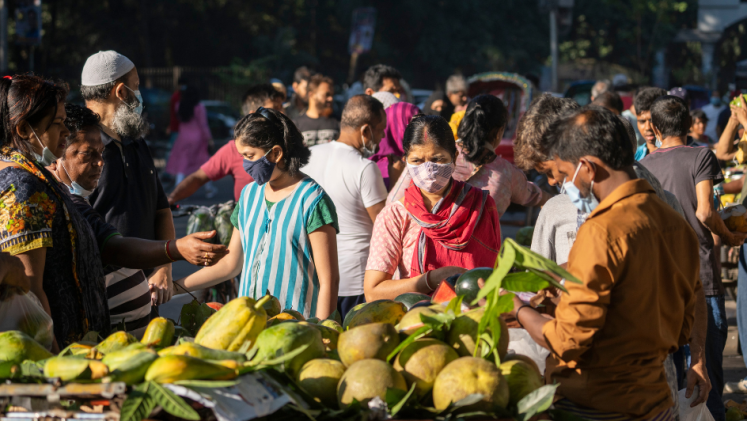In our highly interconnected world, the impacts of hazards are disproportionately felt by those already in vulnerable situations. Discrimination and marginalization of people based on gender, geographical location, income, health status or ethnicity has created unequal conditions across communities which influence how we need to respond and recover from disasters. The COVID-19 pandemic is a recent example of an unprecedented disaster where impacts have been strongly entangled with gender dynamics.
Here are five aspects on how the impacts of COVID-19 have been influenced by gender. These insights are drawn from research conducted by UNU-EHS in the Southern African Development Community. The findings highlight the relevance of gender-responsive risk management to leave no one behind in the recovery from the pandemic.
Gender played a significant role in shaping the impacts of COVID-19
The COVID-19 pandemic had widespread impacts across the globe, which affected people differently. In the SADC region, all countries reported impacts of COVID-19 that were influenced by gender. Increased unpaid care work and educational disparities were shared experiences across the region. Increased school dropout numbers resulted in the rise of child marriages and teenage pregnancies in Malawi, likely widening already existing educational inequalities between boys and girls. Additionally, reduced access to health facilities amplified health challenges such as HIV, particularly for rural youth populations seeking sexual and reproductive health care.
Responses to COVID-19 accelerated gender-based violence
The pandemic has systematically worsened violence against women and girls around the world. According to UN-Women, 7 in 10 women say that verbal or physical abuse by a partner became more common during the pandemic globally. When response measures to contain the spread of the disease were implemented, gender-based violence increased. For example, women experienced barriers to seeking help in abusive households during lockdowns.
Women are at the forefront of response and recovery from COVID-19
Women have played pivotal roles in the COVID-19 response. Across the SADC region, women took crucial positions in frontline health care, service sectors and education. For instance, women-led networks played a key role in providing food and psychological support to the local community during the pandemic in Zambia.
Gender inequality in leadership and decision-making hampers disaster risk management efforts
Women’s representation and participation in politics is a core pillar of SDG 5 on Gender Equality. However, women remained significantly underrepresented in decision-making roles and leadership throughout the pandemic globally. In the SADC region, there are best-practice examples that tackled this issue, such as the one from South Africa, where representatives from the civic society were brought together, including gender justice activists, disability groups and indigenous leaders to facilitate diverse stakeholder cooperation in the COVID-19 response.
No one should be left behind on the road to recovery
The pandemic has created setbacks in achieving SDG 5 on Gender Equality. Globally, almost all countries took response measures, while interventions to strengthen women and vulnerable groups in recovery are less evident. For example, investing in recovering women’s economic security only makes up 20 percent of the global social protection measures. The best response practices collected in the SADC region highlight the need for gender-sensitive measures to ensure risk management efforts reach everyone. Key measures include expanding social grants and protecting social groups, investing in education, raising awareness of gender discrimination, and increasing political representation for marginalized groups in decision-making. Systematically incorporating gender dimensions into risk assessments is crucial to combat root causes and drivers that create unequal conditions in society.





